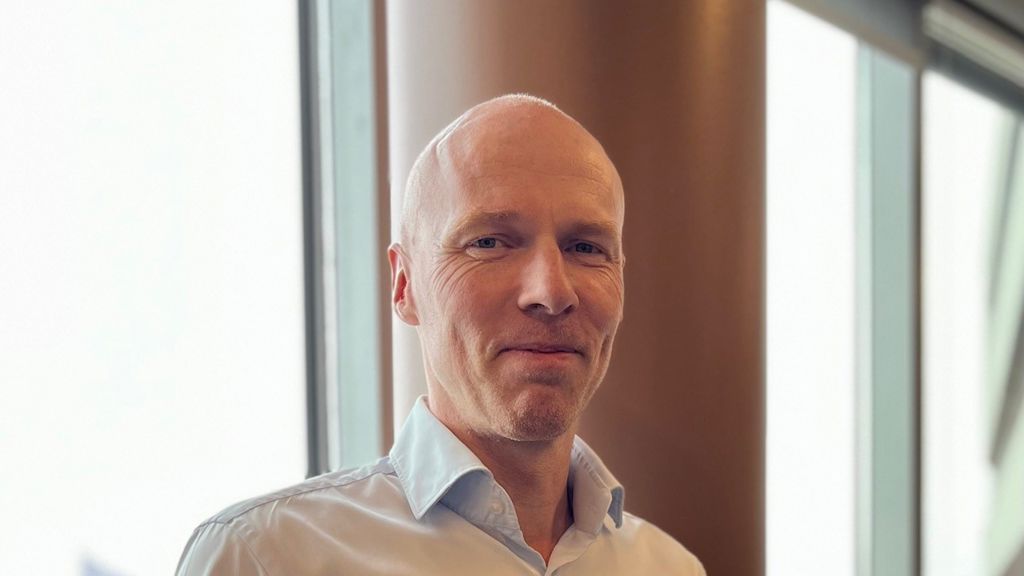BEC received more than 2,000 applications in 2023: Hired 61 young people in Denmark and Poland
Every year, thousands of recent graduates try to get a place on one of BEC's graduate programmes in Denmark and Poland. "We believe that it pays off in the long run in terms of lowering employee turnover and acquiring skilled employees who will quite quickly move up the ladder with us," says the person responsible for the area at BEC.
Every year, BEC hires between 30-60 new graduates to work at their offices in Denmark and Poland through the data centre's various graduate programmes.
This type of recruitment was first attempted in 2014 to secure new talent and ensure succession in the organisation. Today, it is an important prerequisite for BEC's capacity to build and develop new financial technology and ensure efficient, reliable IT systems for the Danish banking sector.
So says Søren Kristensen, Area Director for Talent Attraction at BEC.
"Graduates are important in our recruitment strategy. It's our primary channel for bringing new graduates into the organisation," he says.
"If you take a tour of the offices in Roskilde, Herning and Warsaw, you'll very likely meet a BEC specialist or manager who started in our graduate programme.
The recruitment form is so successful that many of the graduates end up staying with BEC for many years, says Søren Kristensen.
A resource-driven machinery
It takes a lot of resources and energy for BEC to drive the machinery supporting the programmes.
Two employees in Denmark and Poland are allocated full-time to the programmes, which include screening piles of applications, joint days with workshops, tests and assignments, including the ongoing training, mentoring and education that graduates receive during their intense one-year programmes.
"We believe that it pays off in the long run in terms of lowering employee turnover and acquiring skilled employees who will quite quickly move up the ladder with us," explains Søren Kristensen.
When BEC posted around 61 graduate vacancies in 2023 to attract software engineers, infrastructure specialists, data engineers and business analysts, they received more than 2,000 applications from candidates across Poland and Denmark.

Finance and IT capture the interest of young people
According to the company Graduateships, there were 350 graduate programmes accross 75 companies in Denmark in 2023.
Major Danish companies like Novo Nordisk tend to attract the most applicants to their graduate programmes.
However, many finance and IT programmes also receive a high number of applicants, says Palle Broe, Co-founder and CEO of Graduateships.
"Finance ranks high on young people's list of industries they’d like to kick-start their career in. Especially in combination with IT, which makes it more fintech-driven," he says.
Intense battle for the best
BEC receives most applications from students studying business, IT management and software design at universities in Denmark, and in Poland, especially in Warsaw and the surrounding area.
But the battle for the best students in a year is fierce.
In Poland, for example, BEC is already trying to recruit talents from universities before they graduate.
"In Poland, we need to be ahead of things, because companies from all over the world are trying to reel them in," says Søren Kristensen.
"It’s different in Denmark where it’s more common for young people to complete their studies before applying for admission. But even here, the competition for the best is intense, especially for those studying IT. That's why we try to be present at all the major universities on a regular basis to show what we’ve got to offer."
What BEC looks for
BEC is currently in the process of finding the next cohort of graduates who will be starting on 1 August.
This means that a rigorous selection process has now begun, where applicants are eliminated in the first phase based on their immediate qualifications from the universities.
"We obviously look at grades, fields of study and the universities they come from. But we also consider things like volunteer work or special commitments or professional skills," he says.
After the initial screening, an assessment process begins, which includes a series of days of joint workshops where the selected applicants are subjected to various tests, collaboration in teams and personal interviews.
"Here we observe and evaluate how they work together, how they work in a team context; are they lone riders or can they make things work? Are they curious, and have they got personal drive? That's primarily what we're looking for."
Plenty of opportunities
BEC ultimately ends up with a group of recent graduates who are offered the one-year graduate programme as well as a permanent team and manager.
When the one-year programme is over, they transition to a full-time position at BEC and a career in financial IT services for a wide range of banks in Denmark.
"It's a way to kickstart your career within the exciting areas that we believe we're working with at BEC." Complex problems and a diverse system landscape are what makes up a large part of Denmark’s finance infrastructure, which has plenty of opportunities.
"There's something from the old and the new world encompassed by a lot of good compliance and regulatory requirements."





